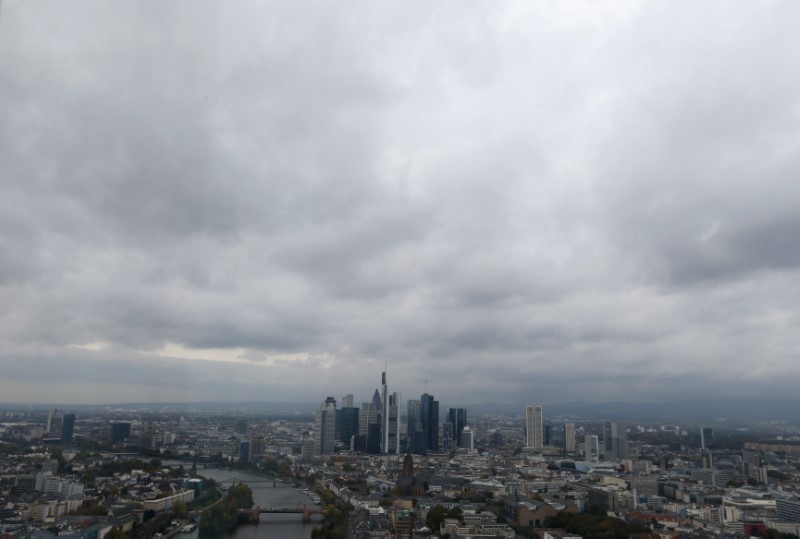By Jonathan Cable
LONDON, (Reuters) - Euro zone business growth faded again in April but the picture still remained relatively bright as new business stayed strong and firms managed to build up backlogs of work, a survey showed on Friday.
However, somewhat worrying for policymakers at the European Central Bank as they look to move away from their ultra-loose stance, inflationary pressures eased and the survey hinted at further easing in coming months.
IHS Markit's Final Composite Purchasing Managers' Index, seen as a good overall indicator of euro zone growth, fell to a 15-month low of 55.1 in April from March's 55.2.
That was a touch below a flash estimate but still well above the 50 mark separating growth from contraction. It was the lowest January 2017.
"Despite the drop, the PMI is not yet at a worryingly low level, but the survey details hint at further easing in the coming months," said Chris Williamson, chief business economist at IHS Markit.
Williamson said the survey was indicative of the euro zone economy growing around 0.5-0.6 percent this quarter. A Reuters poll last month pegged growth at 0.6 percent, faster than the official flash first quarter estimate of 0.4 percent.
But forward-looking indicators suggested more momentum may be lost. While backlogs of work were again accrued firms did so at a slower rate and this meant an index measuring optimism fell to a five-month low of 65.7 from 66.3.
"Any further deterioration could herald new concerns among policymakers regarding the economic outlook," Williamson said.
Composite PMIs for Germany, France and Spain all fell from March readings while France's held steady.
An earlier flash PMI covering the bloc's dominant service industry suggested activity there picked up but the final reading showed a fall to 54.7 last month from March's 54.9. The preliminary estimate was 55.0.
April's slowdown came despite service firms raising prices at a shallower rate - the output price index fell to a seven-month low of 51.8 from 52.1.
Official flash data on Thursday showed April inflation unexpectedly slipped to an annual 1.2 percent in the bloc as prices of services increased at a slower pace. The ECB wants inflation just below the 2 percent.
ECB policymakers have been debating whether to end the central bank's 2.55 trillion euro ($3.1 trillion) asset purchase scheme but evidence of weakening inflation after a string of downbeat data could make it more difficult for them to curb stimulus.
A Reuters poll found last month said the ECB would end the stimulus this year and hike interest rates in 2019.

($1 = 0.8352 euros)